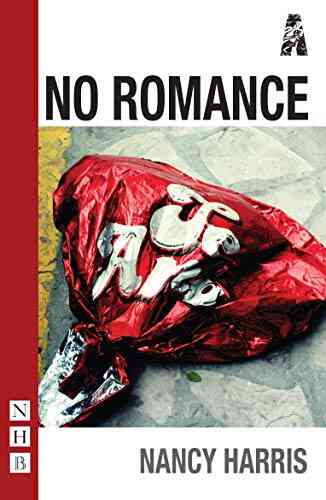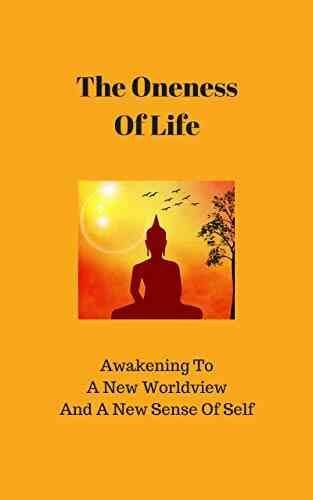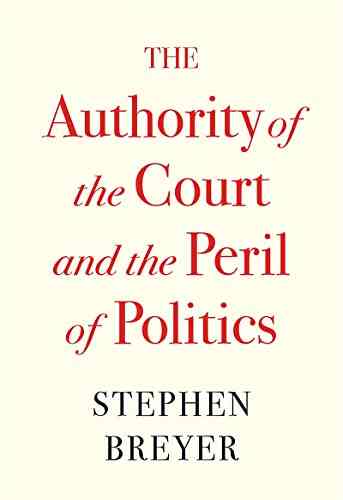The Authority of the Court and the Peril of Politics: Balancing Justice and Democracy

In the ever-evolving landscape of governance and power dynamics, the authority of the court stands as a crucial pillar in upholding justice and maintaining the delicate balance between the judiciary and the political realm. However, the court's authority can be subject to influence, manipulation, and the peril of politics, potentially compromising its integrity and impartiality.
The Scope of the Court's Authority
The court's authority, embedded in the principles of constitutionalism, ensures the interpretation and application of laws to maintain social order and protect individual rights. This authority extends to all branches of government and acts as an essential check on their actions, preventing any abuses of power.
As an impartial arbiter, the court is entrusted with the responsibility of settling disputes, interpreting legislation, and ensuring constitutional compliance. It exercises judicial review to strike down unconstitutional laws or government actions, providing citizens with the reassurance of a fair and just society.
4.4 out of 5
| Language | : | English |
| File size | : | 1161 KB |
| Text-to-Speech | : | Enabled |
| Enhanced typesetting | : | Enabled |
| X-Ray | : | Enabled |
| Word Wise | : | Enabled |
| Print length | : | 103 pages |
| Screen Reader | : | Supported |
The authority of the court is derived from the public's trust in its ability to operate independently and to make decisions void of political influence. It is this trust that enables the court to maintain legitimacy and serve as an unbiased entity, untainted by external pressures.
The Peril of Political Influence
However, the peril of politics poses a constant threat to the court's authority. Throughout history, we have witnessed numerous instances where politics have seeped into the judicial realm, potentially compromising the delivery of justice and undermining the democratic principles we hold dear.
1. Appointment and Confirmation Process
In many countries, the court's authority begins with the appointment and confirmation process of its judges. This process can become contentious, with political considerations overshadowing the merits and qualifications of candidates.
When political parties or individuals with vested interests gain control over the appointment process, they can potentially select judges who align with their ideological preferences. This poses a significant risk as it erodes the diversity of legal perspectives within the court, compromising its ability to make fair and impartial decisions.
2. Ideological Bias
The court's authority also faces peril from the ideological bias that can infiltrate its judgments. Judges, like any individuals, possess their own beliefs and worldviews that can inadvertently influence their decisions.
When judges allow their personal ideologies to sway their interpretation of the law, it undermines the objective application of justice. This is particularly worrisome when politically polarizing issues reach the court, as the prevailing ideological affiliations of judges may influence their decisions, undermining public trust in the court's authority.
3. Political Pressure
Political pressure can also exert immense influence on the court's authority. Governments and politicians may attempt to shape or influence court decisions by altering legislation, withholding funding, or engaging in public campaigns to pressure judges into ruling in their favor.
Such interference not only compromises the court's independence but also erodes public confidence in its neutrality. It blurs the line between the judiciary and the political realm, undermining the court's authority as a check on governmental powers.
Maintaining the Balance: Justice and Democracy
While the peril of politics lingers, it is crucial to establish mechanisms that safeguard the court's authority and uphold the values of justice and democracy.
1. Transparent Appointment Process
One way to minimize political influence is by adopting a transparent and merit-based appointment process. Clear criteria, public hearings, and the inclusion of a diverse array of legal experts can help safeguard against appointments based solely on political motivations.
2. Judicial Education and Training
Providing ongoing education and training to judges is essential in mitigating the dangers of ideological bias. Continuous learning ensures judges remain up-to-date on legal principles, fostering a commitment to impartiality and objectivity in their decision-making.
3. Safeguarding Judicial Independence
Strengthening the court's independence through legislative measures is vital in preserving its authority. Adequate funding, security of tenure, and statutory protection from political interference can insulate the court from external pressures and allow it to function as an impartial and credible institution.
4. Open Dialogue with the Public
Engaging in open dialogue with the public can help restore and reinforce public confidence in the court's authority. Increased transparency, explaining decisions, and educating citizens on the court's role can bridge gaps in understanding, further strengthening the court's legitimacy.
The authority of the court remains indispensable in upholding justice and addressing the peril of politics effectively. By recognizing the threats that political influence poses and actively implementing measures to counter them, we can strike a delicate balance that preserves the court's authority while safeguarding democratic principles. In doing so, we protect the fundamental fabric of our society and ensure justice remains the cornerstone of governance.
4.4 out of 5
| Language | : | English |
| File size | : | 1161 KB |
| Text-to-Speech | : | Enabled |
| Enhanced typesetting | : | Enabled |
| X-Ray | : | Enabled |
| Word Wise | : | Enabled |
| Print length | : | 103 pages |
| Screen Reader | : | Supported |
A sitting justice reflects upon the authority of the Supreme Court—how that authority was gained and how measures to restructure the Court could undermine both the Court and the constitutional system of checks and balances that depends on it.
A growing chorus of officials and commentators argues that the Supreme Court has become too political. On this view the confirmation process is just an exercise in partisan agenda-setting, and the jurists are no more than “politicians in robes”—their ostensibly neutral judicial philosophies mere camouflage for conservative or liberal convictions.
Stephen Breyer, drawing upon his experience as a Supreme Court justice, sounds a cautionary note. Mindful of the Court’s history, he suggests that the judiciary’s hard-won authority could be marred by reforms premised on the assumption of ideological bias. Having, as Hamilton observed, “no influence over either the sword or the purse,” the Court earned its authority by making decisions that have, over time, increased the public’s trust. If public trust is now in decline, one part of the solution is to promote better understandings of how the judiciary actually works: how judges adhere to their oaths and how they try to avoid considerations of politics and popularity.
Breyer warns that political intervention could itself further erode public trust. Without the public’s trust, the Court would no longer be able to act as a check on the other branches of government or as a guarantor of the rule of law, risking serious harm to our constitutional system.
Do you want to contribute by writing guest posts on this blog?
Please contact us and send us a resume of previous articles that you have written.




















Light bulbAdvertise smarter! Our strategic ad space ensures maximum exposure. Reserve your spot today!

 Doug PriceStudy Notes From Jim Rohn: How To Have Your Best Year Ever The Untraditional...
Doug PriceStudy Notes From Jim Rohn: How To Have Your Best Year Ever The Untraditional...
 Deion SimmonsUnlocking the Mysteries of Amtrak City Of New Orleans Route Maps: The Hidden...
Deion SimmonsUnlocking the Mysteries of Amtrak City Of New Orleans Route Maps: The Hidden... Bruce SnyderFollow ·19.3k
Bruce SnyderFollow ·19.3k David PetersonFollow ·8.6k
David PetersonFollow ·8.6k Cade SimmonsFollow ·2.8k
Cade SimmonsFollow ·2.8k Chase MorrisFollow ·9.7k
Chase MorrisFollow ·9.7k Holden BellFollow ·10.2k
Holden BellFollow ·10.2k John Dos PassosFollow ·2k
John Dos PassosFollow ·2k Samuel WardFollow ·6.1k
Samuel WardFollow ·6.1k Eliot FosterFollow ·8.7k
Eliot FosterFollow ·8.7k

 Brian West
Brian WestTaking Pride Maria Baes: Embracing Individuality and...
When it comes to self-expression and...

 Gordon Cox
Gordon CoxThe Red Well Western Trio: Experience the Authentic Wild...
Are you looking for an exhilarating escape...

 Kyle Powell
Kyle PowellThe Mesmerizing Colors of Black Hills Fall: Experience...
As the warm days of summer fade away,...

 J.D. Salinger
J.D. SalingerNo Romance Nhb Modern Plays: An Unconventional...
Love has always been a predominant theme...

 Ernest J. Gaines
Ernest J. GainesShunned Seal Team Disavowed: Unraveling the Secrets of...
When it comes to the...

 Colt Simmons
Colt SimmonsThe Enthralling Journey of Grimstone Croft and Wesson...
Are you ready to embark on an extraordinary...

 Harry Cook
Harry CookMarried Struggle Varsity - Unlocking the Secrets for a...
Marriage is a beautiful journey...

 Douglas Powell
Douglas PowellDragons Vs Elves Vs Humans Coming Of Age Fantasy Beyond...
Once upon a time, in a realm beyond our...

 Ted Simmons
Ted SimmonsOfficial Game Guide Updated For Mass Effect Final Version
Mass Effect, the...

 Marc Foster
Marc FosterThe Mistborn Saga: Journey into a World of Magic,...
Welcome to the enchanting...

 Al Foster
Al FosterThe True Story of Injustice in the American South: A Tale...
From the pages of history, we uncover a...

 Vince Hayes
Vince HayesDiscover the Incredible Awakening to a New Worldview and...
Have you ever found yourself questioning the...
4.4 out of 5
| Language | : | English |
| File size | : | 1161 KB |
| Text-to-Speech | : | Enabled |
| Enhanced typesetting | : | Enabled |
| X-Ray | : | Enabled |
| Word Wise | : | Enabled |
| Print length | : | 103 pages |
| Screen Reader | : | Supported |

















